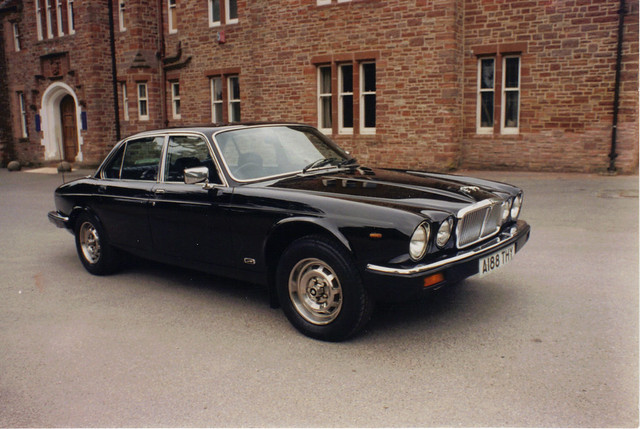-
Posts
52 -
Joined
-
Last visited
Content Type
Profiles
Forums
Blogs
Events
Posts posted by Sadogoat
-
-
Iommi actually tuned down to lower his string tension after he cut the tips of his fingers off, from what I heard.
Yes... my point is simply that his sound is more than heavy enough with his .08 strings... so use whatever you like
-
Heavier than very most that calls itself "heavy"...
-
btw it's a common misconception that thicker means heavier. Kerry King uses .09 afaik, Iommi even uses 0.08, and I haven't heard anyone complaining that Iommi's sound isn't heavy enough
-
And here's a guy I didn't get when I was younger - Francis Bacon:

That's just lovely!
-
-
12-52 is really heavy for E standard tuning, I think they used that in the stone age, or Jurassic or whatever. That's the sort of strings I'd use for C tuning.
Of course it's partly personal preference, but after trying with different strings strengths, I'd never go beyond 10-46 (which I use for D tuning on the most common Fendery 25.5" scale, and as standard on 24.75" Gibson/Epiphone).As for pickups, it really depends on the music you want to play. Hendrix? Sabbath? Slayer?
-
Hieronymus Bosch ftw. The true mayhem.

-
What are you talking about, "actually"? It's fucking awesome. And while we're at it, Jaguar made some of the greatest cars ever, having more class than even a Ford Thunderbird with flames decals.I love the Jaguar Mk II actually. When infamous criminals use a specific make and model as the getaway car of choice you know it's a monster.
-
Sadly, the only production rally car left
 which is ironic given that Subaru quit the WRC years ago
which is ironic given that Subaru quit the WRC years ago -
-
-
Aren't pretty much all metal lyrics?I love Cradle of Filth lyrics. They're complete fucking nonsense. -
Subaru WRX STI, the classic "you might actually get laid if you wouldn't drive that car" car. But I dig it! All you need to tell your prey is that it has three differentials, and they can't resist.

-
I love women making an impression, and I wish there were more. I dig powerful female vocalists. CZwn3GNwXM
-
Ferrari do like their numbers don't they? 360' date=' 458, 612, 599, 250, doesn't seem to be any specific pattern to them either.[/quote'] There is a pattern to them, or should I say patterns, because the real problem is they more or less arbitrarily use different methods for coming up with numbers. 250 = each cylinder has ~250cc 360 = 3.6 litre engine 456 = each cylinder has 456cc 458 = 4.5 litre V8 599 = 5999cc engine 612 = (generously rounded up) 6 litre V12 488 = each cylinder has 488cc
-
The legendary Opel Manta. Enter, countersteer, start engine. Q2gtMqonG2Y
-
And flowers remain Flowers to step on!! Flowers to burn! - Darkthrone
-
Yes right there was that. Sorry, had a blackout. Nargaroth represents all that's awful and embarrassing about BM. As does Varg after Filosofem.
-
What's with James Hetfield?
-
It's no matter really. Usually, the shorter the scale, the thicker your strings to have similar tension. But that's about it. Most guitars today are 25.5" (Fender standard) and have 9-42 strings, but in the past they used much heavier strings. Gibson standard is 24.75" and they usually come with 10-46. You can easily use thicker or thinner strings for either. In theory, for downtuning you want longer necks (that's why baritones have long necks, typically 27"), but again, the difference between standard 24.75" to 25.5" guitars is so small that it hardly matters. Using heavier strings makes your sound slightly fatter, and if you want to use heavier strings, a shorter scale is a bit better because of slightly lower string tension. But the difference is so small that it doesn't matter. I don't see why fretboard radius would affect sound in any way, it is only about playability. I think smaller fretboard radiuses are more comfortable for chords while larger ones/flatter necks are better for soloing. Traditionally you'll have rather small radiuses, but these days, radius will typically vary between 12" and 16". The much-lauded Jackson and Charvel necks have compound radius necks, that is, 12" on 1st fret for more chord comfort and 16" on upper frets for better solobility. But again, that's a very minor difference. More important than scale length or fretboard radius is fret size. If you're a heavy shredder/bender, the bigger the better (and here we are at Jackson and Charvel again). The more traditional/tame your playing style, the better lower/smaller frets may be, those that you have on your traditional Fender or Gibson guitar. Long story short, don't care too much about scale length or fretboard radius. edit: another thing that's more important than length or radius is neck thickness and width. Soloists usually want their neck flatter and wider, but that's much personal preference. Ibanez has some extremely flat and fast "Wizard" necks, too flat for many. Jackson/Charvel are slightly tamer, sweet spot for many. Schecter tend to be thicker and narrower than those, which I personally don't like, but that's really individual preference. Gibson necks on the other hand can be brutally thick (most notably their 50s necks), the term "tree trunk" is often used. That may be good for grabbing chords, but I find them awfully uncomfortable. Then again, there's no general rule about Gibson. A Gibson SG can have a tree trunk neck or a flimsy thin one, depending on year and model. That's really something you have to try out. Personally, for faster palying, I want flatter necks. Doesn't have to be as flat as the more extreme Ibanez Wizard necks, but personally I find the Gibson tree trunks hardly playable.
-
Well' date=' I don't know of many people who wouldn't accuse Kanwulf of being a clown...[/quote'] Not sure how my post reminded you of Kanwulf, but heh yes... appearing in a crappy talk show about a flatmate who doesn't like his looks F-_Z3jQ2MrQ This is so black metal to be brutally honest
-
To be honest I'm not too fond of anything particularly flashy' date=' unless it has the engine to back it up[/quote'] The TVR Sagaris is some 400hp and 1,000 kg iirc, so I believe it's not too shabby edit: or how about the TVR Cerbera Speed 12? 800bhp RWD on 1,000kg, pure madness, which is always a good thing

-
Two objections: A) classical doesn't equal classical, and
 metal doesn't equal metal.
Of course, there's the obvious like Malmsteen or Rhoads or Emperor or much of melodic death metal who remind you of Bach or Vivaldi or Beethoven. Clearly that sort of heavy metal is closer related to classical music than any non-heavy metal modern music.
Then there's the pathos and flamboyance of Judas Priest, Iron Maiden or Manowar, heroes with swords and dragons and shit. That's pretty much Wagner. I think Manowar mentioned Wagner as the first heavy metaller.
But then for example, there's thrash metal and grindcore. I find it difficult to relate Slayer or Sodom or Napalm Death to anything classical, and I don't believe they are too well-versed in classical music anyway. Black Sabbath doesn't remind me much of classical music either.
And then, there's "classical" music that goes far beyond classic classical music. Stravinsky's Le Sacre du Printemps, my favourite classical piece, is thoroughly composed savagery. It's about a human sacrifice no less, it's much heavier and more brutal than most metal, and perhaps it's no coincidence that it debuted one year before WW1 where "civilised" Europe collapsed and met its savage end.
ooi7eomsTuc
Funny enough, the only stuff I can think of that comes close is apocalyptic black metal like Mayhem or Blut aus Nord. Maybe there's the full circle.
7EVM3u8QsuI
metal doesn't equal metal.
Of course, there's the obvious like Malmsteen or Rhoads or Emperor or much of melodic death metal who remind you of Bach or Vivaldi or Beethoven. Clearly that sort of heavy metal is closer related to classical music than any non-heavy metal modern music.
Then there's the pathos and flamboyance of Judas Priest, Iron Maiden or Manowar, heroes with swords and dragons and shit. That's pretty much Wagner. I think Manowar mentioned Wagner as the first heavy metaller.
But then for example, there's thrash metal and grindcore. I find it difficult to relate Slayer or Sodom or Napalm Death to anything classical, and I don't believe they are too well-versed in classical music anyway. Black Sabbath doesn't remind me much of classical music either.
And then, there's "classical" music that goes far beyond classic classical music. Stravinsky's Le Sacre du Printemps, my favourite classical piece, is thoroughly composed savagery. It's about a human sacrifice no less, it's much heavier and more brutal than most metal, and perhaps it's no coincidence that it debuted one year before WW1 where "civilised" Europe collapsed and met its savage end.
ooi7eomsTuc
Funny enough, the only stuff I can think of that comes close is apocalyptic black metal like Mayhem or Blut aus Nord. Maybe there's the full circle.
7EVM3u8QsuI -
Mayhem - Grand Declaration of War



Gig advice
in General Chat
Posted
Seems to work well for Black Sabbath...
But fair enough, I guess I don't have Iommi's reputation...